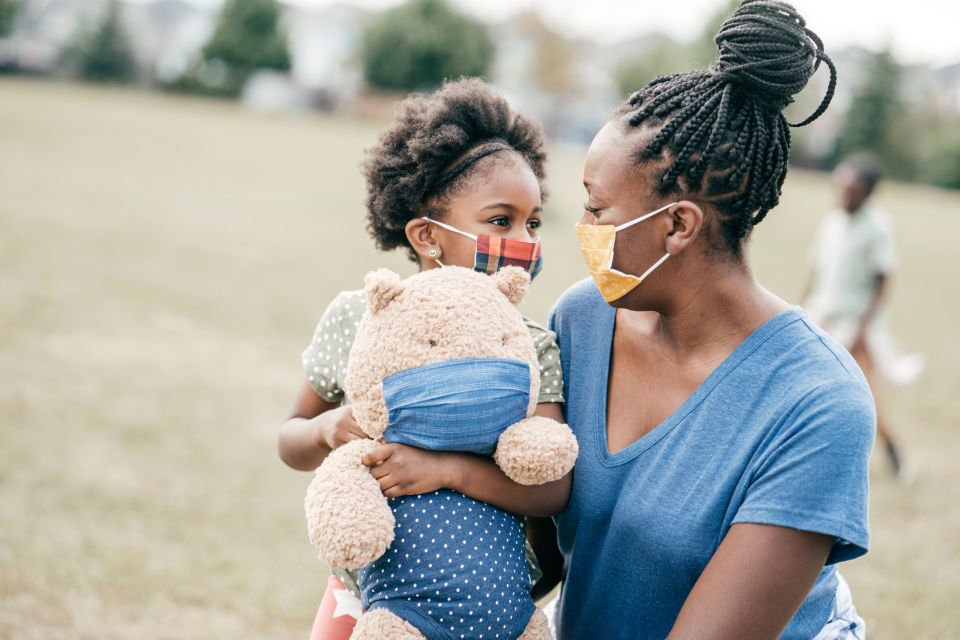The U.S. Surgeon General released a new advisory highlighting the urgent need to address the nation’s youth mental health crisis. Everyone, especially families and caregivers, must work together to support the mental health of our youth.

Today’s young people face unparalleled and uniquely difficult mental health challenges. National surveys have shown an alarming 40% increase in the number of youth experiencing persistent feelings of sadness or hopelessness since 2009. Between 2011 and 2015, youth psychiatric visits to emergency departments for depression, anxiety, and behavioral challenges increased by 28%. Between 2007 and 2018, suicide rates among youth ages 10–24 in the U.S. increased by 57%.
Now, with global stressors like the COVID-19 pandemic, youth behavioral health issues have nearly doubled, based on the most recent U.S. Surgeon General advisory report that was released last week. Young people are suffering from a dramatically changed world that has impacted their ability to make in-person connections with peers and mentors, which is incredibly important to their well-being during their formative years. Many dealt with the death of loved ones and lost access to health care, social services, food, housing, and more. In early 2021, emergency department visits in the United States for suspected suicide attempts were 51% higher for adolescent girls and 4% higher for adolescent boys compared to the same time period in early 2019. This is a national crisis that requires everyone to work together to give our children the help they need.
Caregivers are especially important in helping prevent mental health challenges and teaching children healthy ways to cope. By providing safe, stable, and nurturing environments and relationships, caregivers can help children thrive, even throughout the pandemic. Below are recommendations from the U.S. Surgeon General for how families and caregivers can engage with children on mental health topics and help build their resilience:
As a caregiver, support your own mental health. Raising a child is challenging, even without a global pandemic. On days when you’re starting to feel frustrated or tired, try coping mechanisms like taking deep breaths, listening to calming music, taking a drink of water, or getting outside for some fresh air. By modeling these positive behaviors to your child, you’re helping them become more resilient too. For more information about parental mental health, read our article, and review the listed resources.
Help your child develop strong, safe, stable relationships with you and other supportive adults. According to the American Psychological Association (APA), one of the best ways to increase childhood resilience is to create stable, nurturing relationships with caregivers and other adult mentors. Try doing structured activities together like reading, and if possible, plan these activities around the same time each day you do them. When you have planned activities or events, talk your child through the schedule for the day and tell them about any changes that might come up, even if they are too young to understand your words.
Encourage toddlers and preschoolers to develop healthy social relationships with their peers and adult mentors. When possible, organize playdates, and/or have them join structured after-school activities. As a caregiver, try to engage with your child each day, even if just for a few minutes. Talk to them, make eye contact, and ask questions. If you can, and COVID-19 health and safety protocols allow, take your child with you to run errands or accomplish daily tasks, which can also provide them with social interaction. With your infant or toddler, make funny faces, and respond to their coos.
Schedule regular check-ups with your child’s pediatrician, family doctor, or other health care professional. Pediatricians and other health care providers have worked with hundreds of caregivers during their years of practice. Reach out to them for help understanding the different developmental phases that your child might be experiencing. If you need assistance accessing medical insurance or finding health care providers, see our list of resources below.
Keep an eye out for changes in your child. Distress can show up in a number of ways including irritability, anger, withdrawal, and other changes in their thoughts, appearance, performance at school, sleeping or eating patterns, or other behaviors. If you notice changes in your child, let them know you’re there and ready to support them however they need. Reach out to people you trust to get support for yourself and your child, such as teachers, nurses, doctors, and other professionals. We’ve also included resources for you below to learn more about signs of distress.
Provide a safe, stable, predictable home environment for your child. The COVID-19 pandemic has made life increasingly unpredictable. By providing your child with a regular schedule and routine, you can help reduce some of that uncertainty and anxiety for your child.
Minimize your child’s access to harmful substances and objects. Keep all prescription medication out of reach, and safely store any firearms or other dangerous objects.
Additional mental health resources for caregivers:
Children’s Mental Health and COVID-19 Parental Resources Kit (CDC): Resources for supporting children’s social, emotional, and mental health.
HealthyChildren.org (American Academy of Pediatrics): Parenting tips and other resources. You can also call the American Academy of Pediatrics at (630) 626-6000.
What’s on Your Mind? (UNICEF): Guide for talking to children about mental health.
Family Resource Center (Child Mind Institute): Family resources on child mental health, including Media Guidelines for Kids of All Ages. You can call the Child Mind Institute at (212) 308-3118.
NetSmartz (National Center for Missing and Exploited Children): Online platform to teach children online safety in age-appropriate ways. Contact the National Center for Missing and Exploited Children at (703) 224-2150.
Parents’ Ultimate Guides (Common Sense Media): Information about the safety of current media and technology trends and apps for your children.
HealthCare.gov or InsureKidsNow.gov: Information on enrolling in health insurance coverage. If you have any questions about HealthCare.gov, you can call (800) 318-2596. Call InsureKidsNow at (877) 543-7669.
MentalHealth.gov: What to look for, how to talk about mental health, and how to get help. For immediate assistance, contact the National Suicide Prevention Lifeline at (800) 273-8255 or the SAMHSA Treatment Referral Helpline at (877) 726-4727.
Aging and Disability Networks (ACL): Connect with advocacy and caregiver resources. You can call the ACL at (202) 401-4634.






